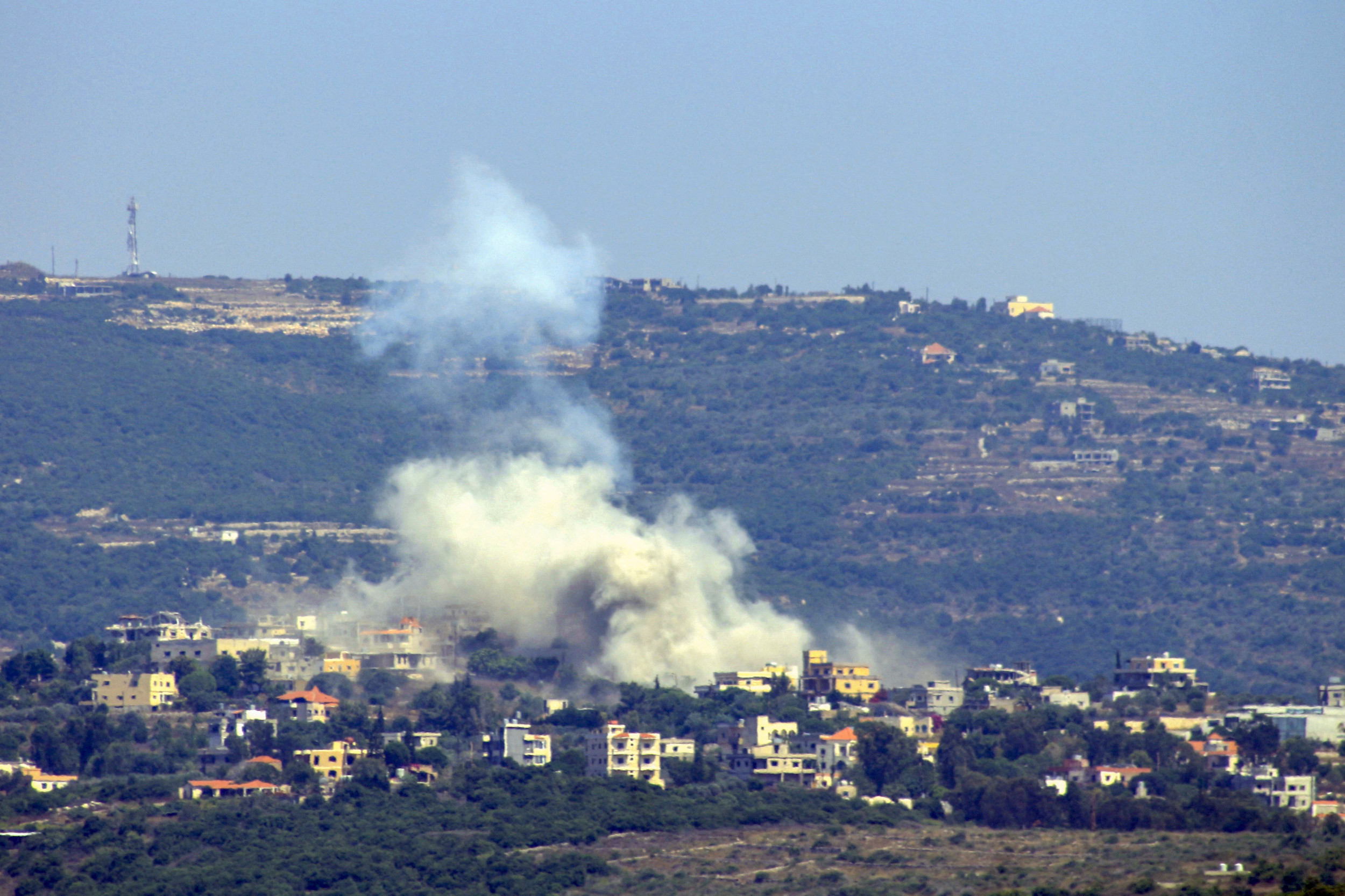Uncommon Knowledge
Newsweek is committed to challenging conventional wisdom and finding connections in the search for common ground.

Warnings between Israeli and Iranian officials have intensified in nature as fears mount throughout the Middle East and beyond over the possibility of a larger-scale conflict erupting due to worsening clashes across the Israel-Lebanon border and the still-raging war in the Gaza Strip.
“The IDF is prepared for a variety of security scenarios in all areas, and will continue to protect the State of Israel from the various threats,” an Israel Defense Forces (IDF) spokesperson told Newsweek on Sunday.
The comments came two days after the Iranian Mission to the United Nations (U.N.) shared with Newsweek and published on X, formerly Twitter, one of the Islamic Republic’s gravest warnings yet over the deteriorating security situation.
“Albeit Iran deems as psychological warfare the Zionist regime’s propaganda about intending to attack Lebanon, should it embark on full-scale military aggression, an obliterating war will ensue,” the Iranian Mission said Friday. “All options, incl. the full involvement of all Resistance Fronts, are on the table.”
The deadliest and longest-ever war in Gaza that broke out between Israel and the Palestinian Hamas movement last October has taken on a regional nature, with a number of factions of the Iran-aligned “Axis of Resistance” entering the battle from abroad. Among the closest and most powerful of these factions is the Lebanese Hezbollah movement.
Israel and Hezbollah have regularly engaged in clashes since the beginning of the conflict in Gaza, but the cross-border battle has increasingly taken the spotlight over the potential for a third Israel-Lebanon war that observers warn could be even more catastrophic than the ongoing Israel-Hamas war.
In addition to Hezbollah, other “Axis of Resistance” factions claiming frequent strikes against Israel include a coalition of militias based in Iraq and Syria and known as the Islamic Resistance in Iraq as well as Yemen’s Ansar Allah, also known as the Houthi movement.
Such groups have also called for the expansion of activities to include Jordan, a strategic United States partner that borders Israel and the West Bank where Hamas and other armed Palestinian factions have also been increasing activities.
Speaking to a military brass delegation on Thursday, Israeli Prime Minister Benjamin Netanyahu outlined what he viewed to be the regionwide battle lines of a broader Israel-Iran war.
“Iran is fighting us on a seven-front war: obviously, Hamas, Hezbollah, Houthis, the militias in Iraq and Syria, Judea and Samaria, the West Bank, Iran itself,” Netanyahu said. “They’d like to topple Jordan. Their goal is to have a combined ground offensive from various fronts, coupled with a combined missile bombardment.”
He added: “The first requirement is to cut that hand—Hamas. People who do this thing to us are not going to be there. We have a long battle. I don’t think it’s that long, but we’ll get rid of them.”
As the IDF continued to announce new operations within Gaza, the Israeli military also claimed several new strikes Sunday in Lebanon, targeting “Hezbollah operational infrastructure and military structure in the areas of Taybeh and Rab El Thalathine,” as well as “a military structure in which additional terrorists were operating in the area of Houla.” The IDF also struck suspected Hezbollah positions in Kfarkela.
Hezbollah, for its part, claimed at least four new operations Sunday, targeting identified IDF positions in Metula, Beit Hillel, Biranit and Yir’on.
The attacks were said to have been conducted “in support of our steadfast Palestinian people in the Gaza Strip and in support of their valiant and honorable resistance, and in response to the Israeli enemy’s attacks on steadfast southern villages and safe houses.”
In a speech delivered on Saturday, Hezbollah Deputy Secretary-General Sheikh Naim Qassem hailed the unity of the “Axis of Resistance” against Israel and affirmed Hezbollah’s right to battle Israel under the Lebanese Constitution.
“We are convinced that this resistance must remain, strengthen, continue, prepare plans, work, and determine the appropriate timing for any confrontation,” Qassem said. “Support for us is a proactive defense. Support for us is a duty and a necessity. Support for us is an integral part of our future in Lebanon and in the region.”
Meanwhile, the White House has continued to express deep concern over a potential escalation between Israel and Hezbollah.
“What we’re trying to do is prevent a second front from opening up,” National Security Council Communications Adviser John Kirby told reporters on Wednesday. “We’re trying to prevent an escalation of this conflict that certainly would put the people of Israel and of Lebanon at greater physical risk than the risk that is already being incurred by them, particularly those that live near the Blue Line.”
He added: “We want to prevent that outcome, which is why we have been working so hard diplomatically and intensely, thus so, to prevent a second front from opening up and an expansion of this conflict.”
Newsweek has reached out to Hezbollah and the U.S. State Department for comment.
Newsweek is committed to challenging conventional wisdom and finding connections in the search for common ground.
Newsweek is committed to challenging conventional wisdom and finding connections in the search for common ground.